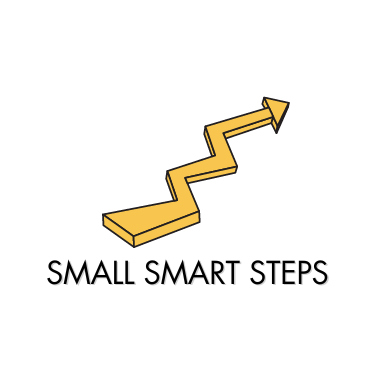Navigating trauma triggers in a relationship can feel overwhelming, but understanding them is the first step toward healing. It sneaks in, leaving its fingerprints all over your thoughts, emotions, and relationships. In a relationship, triggers can feel like emotional landmines, blowing up when you least expect them. But here’s the good news: you can defuse them.
This article isn’t about wishful thinking or vague advice. It’s about real, actionable strategies to manage your triggers, strengthen your relationship, and heal together.
What Are Trauma Triggers? And Why Do They Show Up in Relationships?
A trauma trigger is like a mental tripwire. It’s an emotional or physical response to something that reminds you of past pain. Maybe it’s a partner’s tone of voice, an argument, or even their silence. These triggers aren’t logical—they’re your nervous system screaming, “Hey, this feels familiar, and it hurt before.”
Why relationships? Because they’re intimate. They peel back the layers you usually keep hidden, exposing wounds you didn’t even know you had. And because your partner matters, their actions—intentional or not—can hit harder than anyone else’s.
I once dated someone who would shut down during arguments. For me, the silence felt like abandonment. It triggered memories of being left to “figure it out” as a kid. I wasn’t reacting to them; I was reacting to the ghost of my past.
Step 1: Spot Your Triggers Like a Detective
The first step to dealing with triggers is figuring out what they are. Most people go through life reacting without questioning why. Don’t be most people.
How to Identify Your Triggers
- Track the Patterns: Pay attention to situations that make you overreact. Write them down. Is it when your partner forgets to text back? Or when they cancel plans?
- Notice the Physical Clues: Triggers often show up in your body first. Sweaty palms, tight chest, racing thoughts—these are your early warning signs.
- Ask the Hard Questions: What does this situation remind you of? Is it tied to an old fear, insecurity, or pain?
Step 2: Own It and Communicate (Without Blaming)
This is where most people mess up. They react, blame their partner, and end up in a fight. Don’t do that. Instead, own your triggers. They’re not your partner’s fault, even if their actions set them off.
The Right Way to Communicate
- Start with “I” Statements: Say, “I feel anxious when plans change suddenly,” instead of, “You’re always so unpredictable.”
- When you keep to “I” statements, it helps prevent making your partner feel like they’re being accused of something.
- Be Specific: Explain what you’re feeling and why. The more your partner understands the more they can support you.
- Stay Calm: Timing matters. Don’t have this conversation mid-argument. Wait until you’re both in a good headspace.
- A lot of times when emotions come up, it can be hard to speak objectively or in a calm manner. Take some time and really be conscious about distancing yourself from the situation because people will tend to say hurtful things when they are emotionally riled.
Example: “Hey, I’ve noticed that when we argue and you get quiet, I feel really anxious. It’s probably tied to something from my past, but I wanted you to know so we can figure out how to handle it better.”

Step 3: Build Your Own Coping Toolbox
Your partner can support you, but they can’t heal you. That’s your job. Think of it like building a toolbox of strategies to ground yourself when a trigger hits.
Tools That Actually Work
- Deep Breathing: When you feel overwhelmed, pause and take slow, deep breaths. Count to four on the inhale, hold for four, and exhale for four. This calms your nervous system.
- Physical Activity: Go for a run, hit the gym, or even do a few push-ups. Movement helps your body process stress. Check my article on getting back into the gym if you’re trying to find the motivation to get back into it: https://smallsmartsteps.com/gym-workout-tips-for-a-confident-gym-return/
- Mindfulness: Focus on what’s happening right now, not what your brain is telling you might happen. Apps like Headspace can help.
- Avoid mindfully scrolling on social media
- Be with yourself and your thoughts, not the distractions of others in your life
What I Do: After an argument with my partner, I used to spiral into “what if” scenarios. One day, I decided to disrupt this and went for a 10-20 minute walk, and realized half the stress was just in my head. Now, walking is my go-to reset. Feel free to change this however you like – you can change the walk to a jog or run. I find that upping the intensity sometimes will help with more intense thoughts and emotions.
I also will go to the gym with a friend and lift weights. It’s great because we can talk, do something productive at the same time, and have fun cracking jokes.

Step 4: Create a Supportive Relationship Dynamic
If you and your partner are a team, you’ll heal faster. If you’re adversaries, triggers will keep winning. Here’s how to foster a supportive environment:
What You Can Do Together
- Have a Code Word: Create a word or phrase that signals when one of you needs a break during a heated moment.
- Schedule Check-Ins: Regularly talk about how you’re feeling and what’s working (or not).
- Celebrate Progress: Healing is slow. Acknowledge the wins, even if they’re small.
Example: “I noticed we got through that argument without either of us shutting down. That’s progress.”

Step 5: Know When to Call in the Pros
Sometimes, DIY strategies aren’t enough. If triggers are causing serious conflict or you feel stuck, consider professional help. Therapy isn’t a sign of weakness; it’s a power move.
Signs You Might Need Therapy
- Repeated arguments about the same issues.
- Feeling emotionally disconnected from your partner.
- Struggling to cope with triggers despite trying different strategies.
Smart Strategy: Do Couples Therapy
- Be wary of doing individual therapy and talking about your relationship. This is because your therapist will be hearing only one side of the story, and that can very easily skew the reality of the situation and miss other details otherwise present.
- When you do couples therapy, ideally you find a therapist who can hear both sides of the story objectively. My own experience is that they will be able to call out both sides when it comes to an argument and give them the empathy and attention that each person needs and tailoring that to a harmonious relationship.
But it Costs Too Much
- You might be thinking, why would I want to afford therapy when the economy is rough right now and the price of living is already highly expensive? If you can afford it, I would encourage you to think of therapy as an investment for yourself.
- When you invest in yourself, doors open up in other areas of your life, and you might be able to break through some subconscious barriers you’ve been dealing with that pertain to confidence and self-esteem.
- Check to see if your insurance can cover it.
- Online therapy is a game-changer. Sure, some platforms are better than others—I’ve tried a couple myself, and not every session feels like a breakthrough. But that’s okay. The beauty of online therapy is that it’s a low-pressure, accessible way to dip your toes into the process of healing. I remember my first session feeling awkward like I didn’t know where to start, but just having someone listen and guide me made it worth it. It’s not about finding the perfect fit right away; it’s about starting. The process itself teaches you so much about yourself. And honestly, even a ‘not-so-great’ session can spark an insight you didn’t expect.
- You might be lucky and find a great therapist on the first try, but oftentimes it takes going through a bunch to see what you like and what you don’t like, what works for you better, and what doesn’t work for you as well.
- Don’t get discouraged and believe in the process.
Final Thoughts: Healing Together is Possible
Dealing with trauma triggers in a relationship isn’t easy, but it’s worth it. Every trigger you face is an opportunity to grow—not just as a couple, but as individuals. It’s not about being perfect; it’s about being willing to do the work.
Closing Tip: Remember, your triggers are not who you are. They’re just echoes of the past. With effort, patience, and support, you can quiet them and build a relationship that feels safe, loving, and resilient.

Call to Action: If this article resonated with you, share it with someone who might need it, or start a conversation with your partner about working through triggers together. Healing begins with action.

